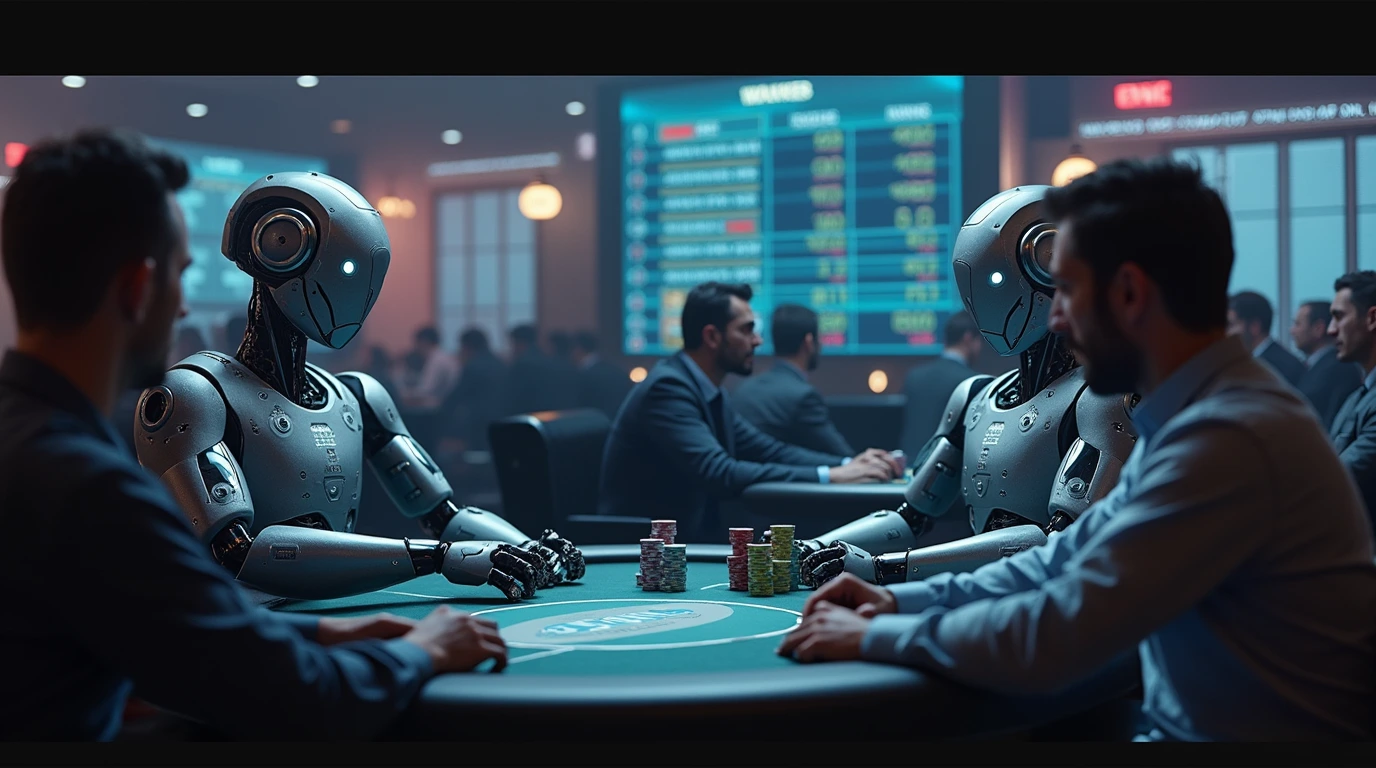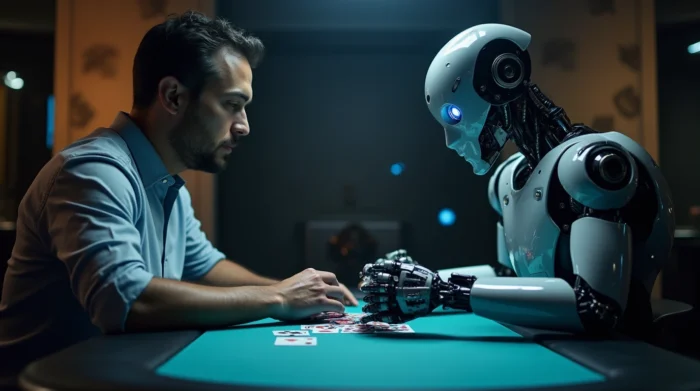There was a time when poker was about reading people, about eye contact, and-about being honest-trying to make sure that guy across the table had absolutely no idea you were bluffing. Actually, I remember those days. As a matter of fact, they are not exactly behind our backs, but then a new player entered the game-without eyes to meet, nerves to crack, or emotions to manipulate. Of course, I’m referring to poker AI.
To the mathematician and AI developer in me, relationships with poker have been a question of numbers, less with nerves. Of course, it is very exciting to conduct a well-conducted bluff, but curiously, what really caught my attention was to see the many ways AI began reshaping poker. Let me make one thing very clear from the start: Poker AI is not about pattern recognition, nor about weighing probabilities, or whatever other technique; it’s about teaching machines to “feel” the game in ways that sometimes let them outdo our intuition.
At the very outset of my research on poker AI, even the very concept of a bot bluffing sounded too outlandish to hold any credibility. How could a machine that is all about cold calculation learn to bluff? Consequently, it would seem that bluffing is not some mystical human skill but rather a calculated risk, an area in which AI is good. It would not be long before AI also mastered this particular aspect of the game. Now we have bots playing, outsmarting many pros-for example, the famous case where Pluribus outsmarted five professional top players and won. The bottom line was that it did not win out by out-calculating them; instead, it won out by out-bluffing them. Machines learning to lie-something almost fascinating and terrifying at the same time.

It seems that the technology has developed incredibly quick, being a developer of poker bots and AI strategies for several years. Let’s just say early poker bots were laughably terrible: they would make the same predictable moves over and over, falling into patterns even an amateur could exploit. Then something flipped, and machine learning got sophisticated in poker. The algorithms will consider the game-thousands of them-and learn from their mistakes a lot quicker than any human ever could.
The challenge in the development of poker AIs was no longer in how to have it win but finding one which could think like a human-even better, think differently enough to beat humans.
I remember at first, any of my poker bots played a pro, I just didn’t really expect that much-nice, maybe a couple of fluke wins or something.
It stood up to this professional, pulled bluffs at just the right moments. That wasn’t just cards; that was reading the player’s behavior and adjusting on the fly. It was one of those weirdly impressive moments, kinda like the first time you ever hear a child lie in your life-it’s kinda powerful, and sometimes unsettling. But perhaps most exciting of all, poker AI actually challenges our notion of the game. We’d like to think that poker is intuition and psychology. At its very core, though, it’s a game of incomplete information. Whatever-poker AI algorithms take that fact and run with it, bases conclusions on statistical probability, not gut feelings. You know what? It works.
I can almost hear all the cynics screaming in my head, “But isn’t poker a human game?” Well, yes and no. Poker AI strategies are not demolishing the game; they make it evolve. If anything, AI only forces human players to be better. Knowing that somewhere out there is a bot that will read your every move and calculate your next one, it then forces you to play smarter, more creatively. After all, who doesn’t love a challenge-getting one over on a machine, in this case? But the thing is that with the rising fame of the poker bots, so rise the ethical questions: should the AI be allowed in the online poker rooms? Is it fair to be pitched against a human? Personally, I see both points. First of all, it’s interesting to oppose human skill against artificial intelligence.
That is, it is kind of unfair for the other side when a bot doesn’t get tired, on tilt, or in any way emotive during a decision. It’s not some bot apocalypse now, taking over the world of poker. Actually, even poker rooms build their AI detectors to level the field in one way or another. In this cat-and-mouse game, quite literally, with every closure opened, another opens. But right this very moment, and to the very best poker AI, to them who would want to see how this technology has moved, it will be fair to go back to Pluribus and DeepStack. Actually, neither of them just looks at a hand and figures out what could be the best possible move; rather, using deep neural networks, each determines precisely what to do in any given situation. As fantastic as that might sound, ripped from the pages of some sort of science fiction novel, it is a reality.
This is where poker players utilize AI poker applications for strategy in poker and how to find bots that could give them the best plays. Where man and machine in poker blend, the lines blur. In my humble opinion, ‘t is quite lovely. Of course, there is still room for human ingenuity: while AI might prove unbeatable in some cases, there is always that element of unpredictability in poker-something no algorithm can ever fully account for. Humans are illogical and emotional animals, and in poker, that is sometimes our biggest strong point. I’ve seen players make moves that defy all logic, only to walk away with a massive pot. AI doesn’t have that kind of unpredictability.
At least, not yet. As a developer, I’m excited about the future of poker AI software. We’re just scratching the surface of what these machines can do. The potential for poker AI development is enormous, and who knows? Maybe the best poker players of tomorrow won’t be human at all. Or maybe they’ll be players like me, using AI as a tool to sharpen our own skills, constantly learning and evolving alongside the machines we’ve built.

Is poker dead, then? Hardly, it’s just evolving. And that is what, in my humble opinion, with the rise of AI, makes it more interesting than ever: sure, there is something to be said for the old-school, face-to-face mind games, but there is a new kind of a thrill in knowing that somewhere out there a bot is sitting at a virtual table, calculating your every move. AI Poker is one of those love-it-or-hate-it card games that is here to stay. And only one question lingers again-are you ready for the future?
